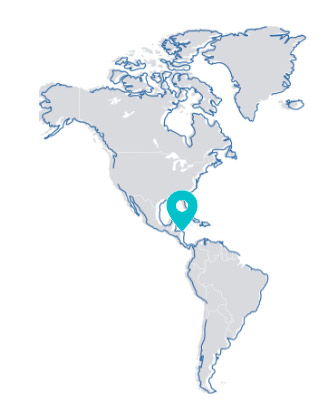-
Projects
-
Kaikaia
In 2007, Nicaragua had a very progressive law on juvenile justice which included providing for alternatives to detentions for the adolescents in conflict with the law. This law was passed in 1998 but implementation had stalled for various reasons:
In 2007, in partnership with Terre des hommes Foundation, Tutator started to work with the Supreme Court in Managua on a project to reform the juvenile justice system based on the application of the current law promoting restorative justice and alternatives to detention.
The first phase of the project consisted in an evaluation of the juvenile justice process and the development of a new procedural code for juvenile justice. Once this new code was developed and approved by the Supreme Court, Tutator and Terre des Hommes assisted in its implementation: hiring, training and deploying multidisciplinary teams (typically a psychologist, a social worker and an educator) in the offices across the country responsible for the implementation of the alternative to detention measures and the individualized follow up of each of the adolescents.
Once these offices were staffed and functioning, Tutator started working on specification, development and deployment of a case management system for the Juvenile Justice system in the country. That software was called Kaikaia from a local dialect word meaning “Monitoring”.
The goals of the Kaikaia software were:
This case management tool was successfully deployed in all 17 regions of the country in early 2010 and today every minor in conflict with the law in Nicaragua can benefit from restorative measures if/when the judge decides that deprivation of liberty can be avoided.
This judge, as well as the team responsible for the follow-up of this kid, have instant access to the status of the case through the use of the Kaikaia system and, depending on what they see, they can decide to make necessary adjustments to the various measures.

The person in charge of supervising all 17 follow-up teams confided to us that “Kaikaia is making a difference, not only to those children in the justice system, but also to their family, their neighborhood and their community.
Indeed, thanks to Kaikaia, these children feel that they are perceived by the system as a person, not just as a case number. They feel that the judge knows and understands them, and this gives them the motivation of improving themselves and achieving something”.
Nicaragua is one of the poorest countries in Latin America (per GNI measure) and any project there is a challenge due to the economic situation.
The political landscape in Nicaragua, even though stable for the duration of our project, is complicated and understanding and navigating this landscape especially when working with the highest-level institutions in the country can be cause for endless surprises, frustration and delays.
This was Tutator’s first project and we were developing our platform at the same time as the Kaikaia tool and we had to learn a lot in a very short amount of time.